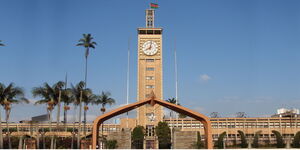Nandi Hills MP Bernard Kitur has proposed the introduction of a tax on sugary beverages to promote public health.
Kitur, on Thursday afternoon, tabled the proposed Health Promotion Levy before the National Assembly's Finance Committee during the ongoing public hearings on the Finance Bill 2025.
The levy mainly targets the soft drinks industry to reduce sugar consumption, encourage healthier product reformulation and generate revenue for the government.
The lawmaker, in his proposal, argued that if implemented, it would encourage manufacturers to lower sugar content in their products and raise funds to promote public health campaigns and school nutrition programmes.
"The increasing consumption of sugar-sweetened beverages in Kenya has contributed significantly to rising cases of obesity, diabetes, and other non-communicable diseases," Kitur said.
"To mitigate this public health crisis, we propose the introduction of the Health Promotion Levy in the soft drinks industry. This levy aims to reduce sugar consumption, encourage healthier product reformulation, and generate revenue to support public health programmes," he added.
According to the proposal, any sugary beverage with more than 4 grams per 100 millilitres would be subjected to the tax, with Ksh1 charged on every extra gram per 100 millilitre of the locally manufactured commodity.
Meanwhile, imported sugary beverages would be subjected to Ksh2 on every gram per 100 millilitres for products with more than 4 grams per 100 millilitres.
However, the lawmaker proposed that fruit juices with no added su gar and dairy-based beverages containing at least 75 per cent milk content be exempted from the levy.
Kitur recommended that proceeds from the Health Promotion Levy be deployed towards school feeding programmes and public health awareness campaigns.
"The introduction of the soft drinks industry Levy will significantly contribute to improving the health of Kenyans while promoting responsible industry practices. We urge Parliament to pass this proposal in the interest of public health and economic sustainability," Kitur stated.
If implemented, Kenya will join the likes of South Africa, which adopted the levy in April 2018 to address the rising cases of obesity, diabetes and other sugar-related illnesses.












